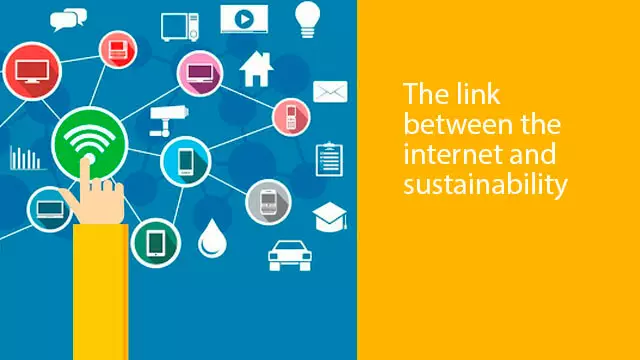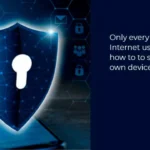You might not think so at first, but the Internet also has a major impact on the environment. Up to ten percent of all electricity worldwide is consumed by devices that are connected to the Internet in a certain way. Such as storage centres, servers, computers and telephones. Fortunately, the Internet also offers great opportunities in the field of sustainability. With the announced energy transition, data and the internet (-of-things) even prove essential.
More exposure for sustainable products and initiatives
The Dutch find companies more sympathetic (76%) if they actually contribute to a sustainable world. Almost 40% are willing to pay more for this, according to the Sustainable 2019 Dossier. The supply on this demand is mainly made possible by the internet. The comparison between sustainable products and services via the internet is also a lot easier.
More and more influencers are also stimulating sustainability by promoting recycled or fair-trade products. In addition, there are platforms where you can join joint environmental initiatives in your own environment.
Book your own spot on the internet
For your own website with, for example, sustainable blogs, products or initiatives, you need a reliable and safe place online. This starts with a domain name and a cheap webhosting partner, preferably with easy management and 24/7 support. Most providers provide a free email address and the possibility to forward or refer. To distinguish yourself, you can nowadays also choose for extensions like .bio, .yoga or .care.
Dates and the energy transition
According to the climate agreement, the Netherlands must be fully CO2 neutral by 2050 with the energy transition. This implies a transition from fossil fuels (oil, natural gas, coal) to sustainable energy (solar, wind and geothermal). Data-driven energy solutions will be used for this. More and more Internet-connected devices (Internet-of-Things) will be introduced, such as smart meters, solar panels, light, but also televisions, washing machines and charging stations.
Sensors are increasingly being used for predictive maintenance and use. They are linked to each other and to the Internet, making it possible to measure energy consumption, yield, temperature and the way in which they are used from any location. It is assumed that the energy transition will only be successful with insight into the perception and behaviour of users. In any case, it is easier to use your equipment energy efficiently if you can monitor and control it remotely. This contributes to reducing costs, increasing sustainability and raising awareness of energy-neutral living.
In addition to surfing websites, streaming, emailing, but especially data exchange and storage, the extra information provided by the Internet-of-Things ensures a rapid growth in the amount and types of data. This is processed and stored on servers in huge data centres. In addition to power consumption, a lot of water is needed to cool the servers in these centres. It is therefore necessary that data centres also become as green as possible. So far, unfortunately, little attention seems to have been paid by the government to the explosive growth of the data sector and the additional environmental burden. However, there are incentive schemes for environmentally friendly measures in data centres, such as using residual heat to heat the built environment.
Digitisation calls for more attention to online security
With increasing awareness of sustainability, this will also be necessary for cyber security as digitalisation increases. Online security is currently still a topic with relatively little attention. As more and more devices are being used that are connected to the Internet, this also requires better security measures to prevent large-scale problems. For your own domain name, this means, among other things, providing an SSL certificate. This places a secure layer between a server and a browser, making the data secure against external devices. Such a certificate is also available from providers of cheap web hosting.




